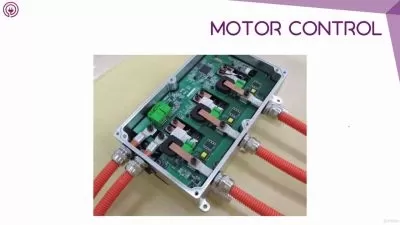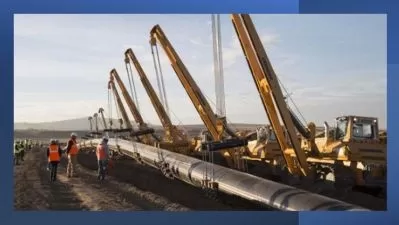Self Driving and ROS - Learn by Doing! Odometry & Control
Antonio Brandi
19:23:12
Description
Create a Self-Driving robot and learn about Robot Localization and Sensor Fusion using Kalman Filters
What You'll Learn?
- Create a Real Self-Driving Robot
- Mastering ROS, the Robot Operating System
- Implement Sensor Fusion algorithms
- Simulate a Self-Driving robot in Gazebo
- Develop a Controller
- Odometry and Localization
- Kalman Filters and Extended Kalman Filter
- Probability Theory
- Differential Kinematics
- Create a Digital Twin of a Self-Driving Robot
- Master the TF library
Who is this for?
More details
DescriptionWould you like to build a real Self-Driving Robot using ROS, the Robot Operating System?
Would you like to get started with Autonomous Navigation of Robot and dive into the theoretical and practical aspects of Odometry and Localization from industry experts
The philosophy of this course is the Learn by Doing and quoting the american writer and teacher Dale Carnegie
Learning is an Active Process. We learn by doing, only knowledge that is used sticks in your mind.
In order for you to master the concepts covered in this course and use them in your projects and also in your future job, I will guide you throught the learning of all the functionalities of ROS both from the theoretical and practical point of view.
Each section is composed od three parts:
Theoretical explanation of the concept and functionality
Usage of the concept in a simple Practical example
Application of the functionality in a real Robot
There is more!
All the programming lessons are developed both using Python and C++ . This means that you can choose the language you are most familiar with or become an expert Robotics Software Developer in both progremming languages!
By taking this course, you will gain a deeper understanding of self-driving robots and ROS, which will open up opportunities for you in the exciting field of robotics.
Who this course is for:
- Self-Driving enthusiast
- Makers and Hobbists keen on robotics
- Software developers taht wants to learn ROS and Robotics
- Students or Engineers that wants to learn how to buid a robot from scratch
- Developers that already knows ROS and that want to use it in a real world application
- Robotics Engineers that wants to develop skills in Autonomous Navigation
- Beginner Python developers curious about Self-Driving
- Beginner C++ developers curious about Self-Driving
Would you like to build a real Self-Driving Robot using ROS, the Robot Operating System?
Would you like to get started with Autonomous Navigation of Robot and dive into the theoretical and practical aspects of Odometry and Localization from industry experts
The philosophy of this course is the Learn by Doing and quoting the american writer and teacher Dale Carnegie
Learning is an Active Process. We learn by doing, only knowledge that is used sticks in your mind.
In order for you to master the concepts covered in this course and use them in your projects and also in your future job, I will guide you throught the learning of all the functionalities of ROS both from the theoretical and practical point of view.
Each section is composed od three parts:
Theoretical explanation of the concept and functionality
Usage of the concept in a simple Practical example
Application of the functionality in a real Robot
There is more!
All the programming lessons are developed both using Python and C++ . This means that you can choose the language you are most familiar with or become an expert Robotics Software Developer in both progremming languages!
By taking this course, you will gain a deeper understanding of self-driving robots and ROS, which will open up opportunities for you in the exciting field of robotics.
Who this course is for:
- Self-Driving enthusiast
- Makers and Hobbists keen on robotics
- Software developers taht wants to learn ROS and Robotics
- Students or Engineers that wants to learn how to buid a robot from scratch
- Developers that already knows ROS and that want to use it in a real world application
- Robotics Engineers that wants to develop skills in Autonomous Navigation
- Beginner Python developers curious about Self-Driving
- Beginner C++ developers curious about Self-Driving
User Reviews
Rating
Antonio Brandi
Instructor's Courses
Udemy
View courses Udemy- language english
- Training sessions 129
- duration 19:23:12
- Release Date 2023/05/17










